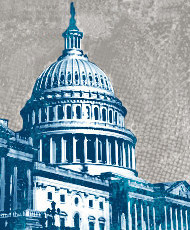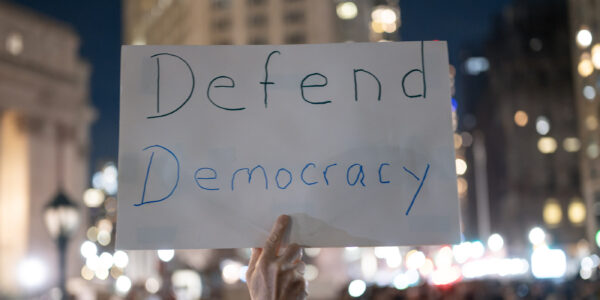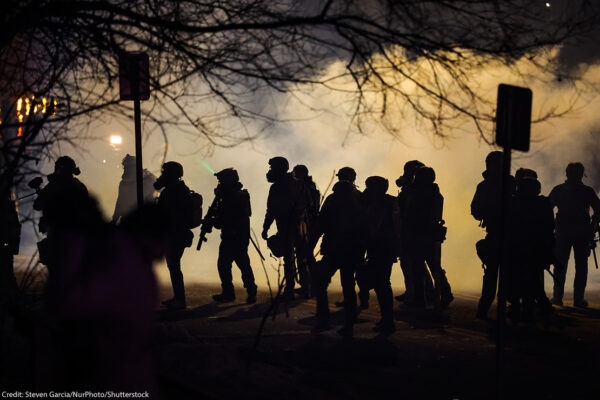
It isn’t a surprise to anyone that our political system is in crisis, and that in times of crisis, real or imagined, civil liberties are most vulnerable.
Notwithstanding the compromise measure that led to final passage of the debt-ceiling deal Tuesday, the drawn-out debate over the bill demonstrated the weaknesses in our political institutions. Hardened ideological perspectives from the left and right have made compromise a dirty word, and brought the legislative process to a near-standstill. In a town that measures winners and losers with daily news cycles, there are no winners, not even those who appeared to prevail in the negotiation, despite the partisan backslapping and bickering.
Make no mistake: the battle over the federal budget is not over, it’s just begun. If anything, it is going to intensify, injecting more polarization into a volatile mix created by high unemployment and higher costs for life’s essentials, growing wealth disparity, and diminished opportunity for too many Americans.
With so many people feeling vulnerable, even those with jobs, their fears are more easily exploited and manipulated for political gain. From the dismantling of collective bargaining rights and coordinated voter suppression efforts in the states, to Congress’ willingness to plunge the world’s economy into chaos by threatening to default on our nation’s financial obligations, there is a common thread being pulled, unraveling the very institutions that preserve, protect and defend our safety and our civil liberties.
In one of the few bits of good news from the debt-ceiling debacle, the exploding budgets for military, intelligence, and law enforcement since 9/11 will finally be opened for reconsideration. Everyone agrees that the forces behind 9/11 and similar attempted terrorism attacks pose a real threat to our national security, but most Americans also agree the government’s responses to those attacks launched an unprecedented erosion of civil liberties. Our response resulted in seemingly unlimited authorization to use military force, to torture and to hide suspects in secret sites abroad -- removed from the reach of American law, and racial profiling, domestic spying and warrantless wiretapping at home.
Some argue that any cuts to our national security and defense spending pose a threat to our safety. The next phase of the debate will be framed as a false choice between defense cuts and revenue increases. Once again, some elected officials will play on fears of imminent attack and will find ways to elevate suspicions of those who don’t look, act, think, vote and pray exactly as they do.
We must frame the coming debate on our terms, reminding Americans that it is our freedom that makes us secure, not our security that makes us free. Focusing only on spending cuts and taxes, and never taking time to understand how our tax dollars affect individual liberties, while lurching from crisis to crisis, is no way to govern.
The month-long August recess is the most critical period that civil libertarians have to make our priorities known to members of Congress while they are home. We must demonstrate there is a constituency for rights. When Congress reconvenes in September, another mini-government shutdown battle looms, and no matter what the calendar says, we will begin a sprint to the 2012 election. Americans will have to be reminded that our liberties and not just our budget are at stake.
Learn more about civil liberties: Sign up for breaking news alerts, follow us on Twitter, and like us on Facebook.


